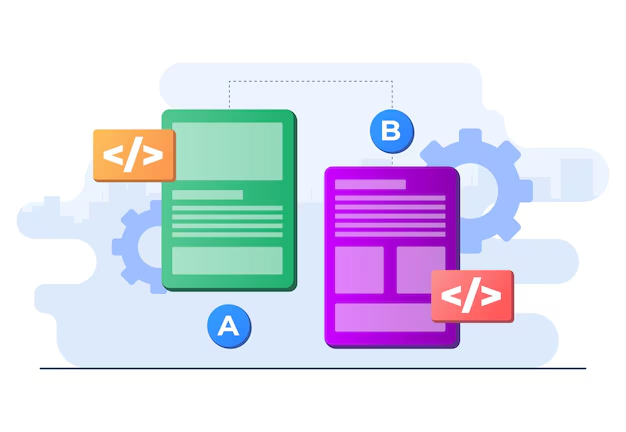Choosing the right technology for mobile app development is a crucial decision that impacts the success, performance, and scalability of your project. Among the top contenders in the market are Flutter and Kotlin, two powerful technologies that are widely used by developers across the globe. Both offer unique advantages, but selecting the right one for your project depends on various factors such as project goals, team expertise, and app requirements.
In this developers’ guide, we will compare Flutter and Kotlin to help you determine which technology is the best fit for your next mobile app development project. By the end, you’ll have a clearer understanding of the strengths and weaknesses of each, making it easier to choose the right option for your business or organization. Whether you’re part of the best mobile app development company in the USA or an iOS app development team, this guide will provide valuable insights.
What is Flutter?
Flutter is an open-source mobile app development framework created by Google. It enables developers to build high-performance applications for both Android and iOS platforms using a single codebase. Flutter’s framework uses Dart as the programming language and provides a rich set of pre-designed widgets that offer a native-like look and feel for mobile apps.
Key Features of Flutter
Single Codebase
One of Flutter’s strongest points is its ability to allow developers to write a single codebase for both iOS and Android apps, saving time and resources.
Rich UI Components
Flutter’s pre-designed widgets make it easy to create highly interactive and visually appealing apps.
Hot Reload
Flutter’s hot reload feature enables developers to see the results of changes in real-time without restarting the app, speeding up the development process.
Why Choose Flutter?
Flutter is ideal for projects that require rapid development across both iOS and Android platforms. Its single codebase and fast development cycles make it a preferred choice for startups or businesses looking to quickly enter the market with a mobile app. Additionally, Flutter is an excellent option if you need high-quality UI/UX and fast prototyping.
What is Kotlin?
Kotlin is a statically typed programming language developed by JetBrains and officially supported by Google for Android development. Kotlin can be used for Android development in place of Java and has quickly become the go-to language for building robust and performant Android apps. It’s also a versatile language that can be used for server-side development and even iOS app development with Kotlin Multiplatform.
Key Features of Kotlin
Native Android Development
Kotlin provides a more streamlined, modern approach to Android development, addressing many of the limitations of Java.
Interoperability with Java
Kotlin is fully interoperable with Java, allowing developers to gradually migrate Java-based apps to Kotlin. Kotlin Multiplatform
This feature enables developers to write code that can be shared between Android and iOS apps, similar to Flutter’s cross-platform capabilities, but with the added benefit of native performance.
Why Choose Kotlin?
Kotlin is the best choice for projects that require high-performance Android apps with access to platform-specific APIs. It’s also an excellent option if your team already has experience with Java or if you want the flexibility to gradually move from Java to Kotlin. While Flutter excels in cross-platform development, Kotlin offers a native-first approach, making it ideal for projects where performance and direct access to Android APIs are critical.
Flutter vs. Kotlin: A Detailed Comparison
Performance
Flutter: Flutter apps are known for their high performance due to Dart’s compilation to native code. The framework uses a rendering engine that helps deliver smooth animations and fast performance.
Kotlin: Since Kotlin is a native language for Android development, it offers excellent performance for Android apps. When using Kotlin Multiplatform, iOS apps also benefit from native performance. Verdict: For Android-only apps, Kotlin has the edge in performance because of its native capabilities. However, Flutter’s performance is excellent for cross-platform development.
Development Speed
Flutter: One of Flutter’s main advantages is its Hot Reload feature, which allows developers to make changes and see them reflected instantly. This dramatically speeds up the development process, especially during the UI/UX design phase.
Kotlin: Kotlin offers fast development cycles, especially for Android apps, but it doesn’t have a feature as fast as Flutter’s Hot Reload. Kotlin Multiplatform development can also take more time than Flutter when developing for both iOS and Android.
Verdict: Flutter takes the lead in development speed due to its Hot Reload feature and ability to deploy apps to both platforms with a single codebase.
Cross-Platform Development
Flutter: Flutter was designed from the ground up to be a cross-platform framework, making it one of the best tools for developing apps for both Android and iOS from a single codebase.
Kotlin: While Kotlin Multiplatform allows for code sharing across Android and iOS, it doesn’t provide the same level of unified development as Flutter. Developers need to write platform-specific UI code, which can increase the development time.
Verdict: Flutter is the clear winner for cross-platform development because it allows for a more unified development process.
UI/UX Design
Flutter: Flutter excels in the UI/UX department with its rich set of customizable widgets and components. Its design flexibility makes it easy to create high-quality, visually appealing apps for both platforms.
Kotlin: Kotlin doesn’t provide the same level of built-in UI components as Flutter. While it allows for native UI development, designers and developers need to create platform-specific UIs, which can be time-consuming.
Verdict: If UI/UX is a priority, Flutter is the better option due to its rich design capabilities.
Learning Curve
Flutter: Learning Flutter requires developers to become proficient in Dart, a less commonly used programming language. However, Flutter’s documentation is comprehensive, making it easier for new developers to get started.
Kotlin: Kotlin’s syntax is similar to Java, so developers who are already familiar with Java will find it easier to learn. Kotlin also benefits from being a more established language with extensive resources available.
Verdict: Kotlin is easier to learn if you have a background in Java. However, Flutter’s learning curve is manageable, especially for developers focused on cross-platform projects.
Community and Support
Flutter: Flutter has a rapidly growing community of developers, backed by Google. It offers extensive resources, tutorials, and active forums where developers can get support.
Kotlin: Kotlin is backed by JetBrains and Google for Android development, and it has a strong community, particularly among Android developers. The language’s longevity also means there are plenty of resources available.
Verdict: Both technologies have strong communities and support, but Flutter is growing faster due to its cross-platform appeal.
Choosing the Right Technology for Your Project
When deciding between Flutter and Kotlin, it’s essential to consider your project’s specific requirements, timelines, and team expertise. Here are some scenarios where each might be the better choice:
When to Choose Flutter
- You need to develop a cross-platform app quickly with a single codebase.
- Your project requires a high degree of design flexibility and rich UI/UX.
- You are working with limited resources and want to save time and costs by avoiding platform-specific development.
When to Choose Kotlin
- You are building an Android-only app and need native performance.
- Your team already has experience with Java or Android development.
- You need to access specific platform APIs or develop highly performant apps with native capabilities.
Conclusion
Choosing between Flutter and Kotlin depends largely on your project’s goals and the skills of your development team. If you are part of the best mobile app development company in the USA or an iOS app development agency, you’ll want to carefully weigh the pros and cons of each technology. Flutter is ideal for cross-platform development with quick turnaround times, while Kotlin shines for native Android app development and offers flexibility with Kotlin Multiplatform for iOS development. Both are powerful options, but the right choice will depend on your specific needs.







